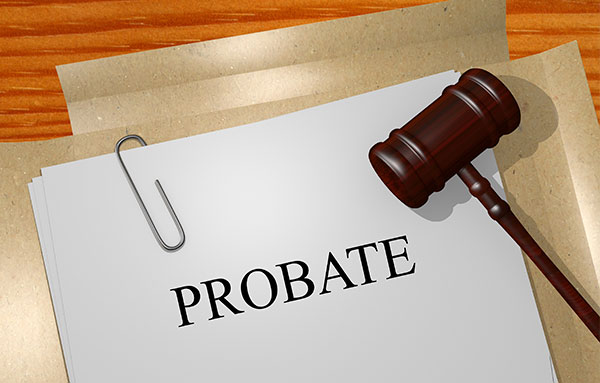If a loved one died recently, you may have found yourself in need of opening a probate. For many, this strikes fear into their hearts, or at the very least makes them groan in dissatisfaction. Probate is notorious for being time-intensive, expensive and just a general pain to go through. Here in Arizona, there are two different types of probate: informal and formal probate. The main difference between the two is how they start. Informal probate doesn’t require a hearing in front of a judicial officer and formal probate does require one. There are also some differences in the circumstances when one might apply for informal probate or petition for a formal probate.
Informal Probate
Informal probates are usually the more favorable option between a formal and informal probate. Because informal probates do not require a hearing, they often are a little bit quicker and cheaper. An informal probate requires submitting paperwork to the probate court registrar. The registrar may appoint a personal representative. They also may admit a will to probate or that a person died intestate.
There are limitations on who can apply for an informal probate. The surviving spouse, an adult child, parent or sibling of the decedent, or an heir can apply for an informal probate. The personal representative nominated in the will can also apply for an informal probate. There are others who can apply for an informal probate in special circumstances. Creditors can apply but only 45 days after death. The Department of Veterans Services if the decedent was a veteran.
The applicant must also have the original last will and testament of the decedent and the will must be a valid will in Arizona. The testator must have died less than two years before the application was filed and the person requesting the appointment as personal representative (sometimes called executor) must have priority for appointment. The applicant must also give notice of an application for an informal probate to heirs and devisees. These are just some of the requirements.
If all of the conditions for an informal probate are satisfied the registrar has the power to appoint the personal representative and probate any valid original will offered for probate. Once the personal representative receives their letters of appointment, it will be up to them to locate and collect the decedent’s property, make an inventory and valuation of the property, give notice to creditors, settle any creditors claims, and disperse the property among the beneficiaries.
Formal Probate
Formal probate starts differently than informal probate. In a formal probate, the petitioner files a petition requesting a that judicial officer direct what action should be taken. Generally, there are two ways a formal probate arises. The first, is if there is some reason why an informal probate is not an option. For example, if over two years have passed since the decedent died, you must file a formal probate. Another example would be if you only have a copy of the will, and not the original will. In some cases you may be able to probate a copy of the will, but it will need to be done through a formal probate.
A formal probate can also arise out of a dispute between two parties. For example, if there are disputes as to interpretations of the will, whether the testator had capacity when signing the will, or who should be the personal representative of the estate, a hearing will be necessary so a judicial officer can hear evidence and decide what to do. In those circumstances, a formal probate will be necessary. Because they require a hearing, formal probates are usually the most time intensive and expensive version of probate.
Notice is also required in a formal probate. In a formal probate notice must be given to the surviving spouse, children and other heirs, any devisees or personal representatives or other personal representatives of the decedent. Notice must also be published to all persons who have an interest in the proceeding at least 14 days before the proceeding.
After the court hearing, the judicial officer may appoint a personal representative. Once the personal representative receives their letters of appointment, they have many of the same duties as a personal representative in an informal probate.
So, how can I avoid probate?
There are a number of ways to avoid probate. The key is to plan now, while you are still alive. Estate planning attorneys use tools like trusts, beneficiary designations, payable on death accounts and beneficiary deeds to remove assets from probatable estates. Once the estate is under $75,000, you can collect assets by a small estate affidavit instead of going through the probate process. In Arizona, collecting assets by a small estate affidavit requires no action from the court clerk or a judge. Instead all that the person has to do is fill out some paper work and collect. The key is to meet with an estate planning attorney now rather than later.



